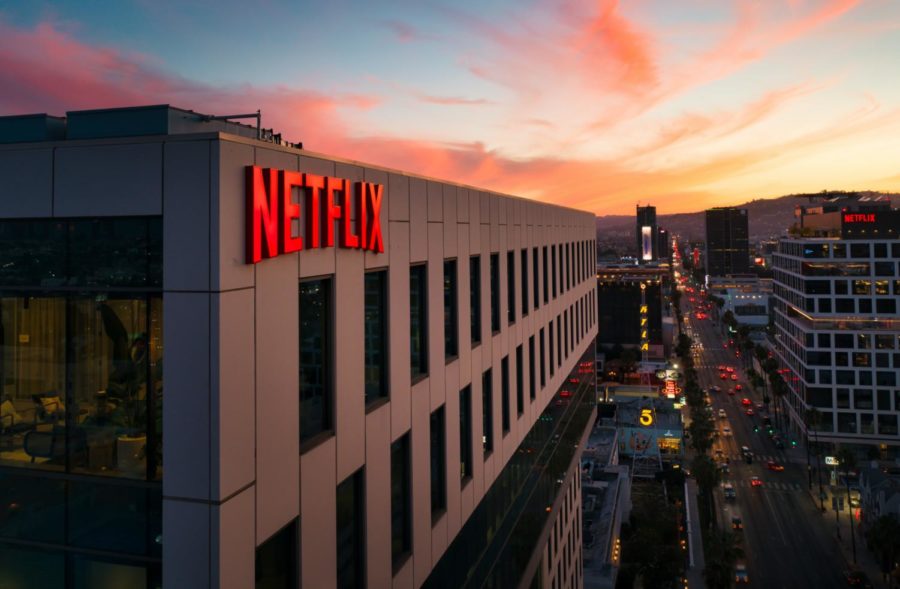What’s Going On With Netflix?
Lately, the streaming service has been constantly rotating its content, removing and adding shows, and causing a buzz on social media. Here’s a look into what has been happening.
Netflix has become widely known as a leader in streaming services in today’s increasingly digital world. However, the company has been surrounded by controversy over the past few years. The company has turned to a variety of tactics to attract more viewers, with a Netflix spokesperson stating, “We will continue to explore other ways to give members more options and ways to explore and discover content they want to watch.”
Of late, you might have noticed something awry on your Netflix homepage.
At the moment, numerous shows and movies appear on the homepage that are marketed to audiences as the newest additions. Naturally, this leads many people to believe that these titles have been released recently. However, this is not always the case, as a closer look at the title’s information will, in fact, reveal that it was very likely released years ago.
Many people have been confused over why Netflix has decided to market media in the way they have chosen. Grace Lin ’23 said, “Why add and market these pieces of media as new when you can just add it in and say, ‘it’s finally here on Netflix?’ I don’t mind more content, even if it’s old, but the way Netflix markets it is kind of odd, since people already know about it.”
Over the past couple of months, Netflix has also removed many fan favorites, such as The Office, Friends, The Hunger Games, and Forrest Gump, resulting in frequent user complaints. According to Tammy Lam ’25, “With Netflix especially, the frequency of cancellation with series is a frustrating experience. For example, I enjoyed watching the shows Inside Job and 1899, but their cancellation came as an unpleasant surprise for me.”
On Netflix’s Help Center page, the company offers the following explanation: “Though we strive to keep the titles you want to watch, some titles do leave Netflix because of licensing agreements. Whenever a TV show or movie license is expiring, we consider things such as: If the rights to the title are still available. How popular it is in a region, and how much it costs to license. If a TV show or movie is renewed, it remains on Netflix for you to enjoy. If a title isn’t renewed, we’ll give you a heads up when it’s about to leave.”
Netflix and other large companies are no strangers to employing unique tactics in an effort to increase consumer interest and improve business. The streaming service has been experimenting with various features to try to see if they could gain viewers’ interest again, especially after a rough first couple of months in 2022 when they lost over one million subscribers. The main reason for this has been controversy that has risen from problematic series and movies that have been added to the platform, and overall negative discourse on social media which has pushed audiences to seek other alternatives for streaming media.
Netflix’s tactic of adding media and marketing it as exciting and “new,” regardless of the truth in this description, is one of the company’s controversial efforts at attracting viewership. “I question the effectiveness of this tool, and to me, it feels deceitful. Rather than focus on lifting up novel pieces of entertainment, Netflix’s recent reputation makes it seem like a mere cash grab,” said Lam ’25.
The leadership of Netflix changed in January 2023 when Netflix co-founder Reed Hastings stepped down from his role as co-CEO to become the executive chairman and was replaced by Greg Peters. Hastings stated that this “executive reorganization” was part of Netflix’s long-term plan, and implied that it was a decision made to hand things off to others who would bring in different ideas for the success of the company. This is just one large-scale sign of the changes that are being implemented, possibly to keep Netflix relevant by bringing attention to its company’s executives while switching up tactics within its service.
One such tactic is the “Surprise Me” feature, which was introduced in 2021 as a way for viewers to shuffle through a selection of shows and movies, all suggested by the service’s algorithm. However, this feature was removed in February 2023 as it was seldom used by viewers. According to a Netflix spokesperson, this was just the start of the platform’s experimentation with different features with the intention of increasing interest in a variety of media: “We will continue to explore other ways to give members more options and ways to explore and discover content they want to watch.”
In addition, news of Netflix’s attempts at an effective password-sharing ban has spread on social media during the past couple of months. Many users share their accounts with others for convenience and to reduce ever-rising subscription costs. As such, there has been much confusion and speculation over how the ban would work and what consequences there would be. At the beginning of this year, Netflix began its password-sharing ban by adding a fee to users who wanted to share their passwords with a separate household. The most notable consequences so far have been in Spain, where over 1 million users have stopped using the service altogether.
One of the biggest changes Netflix is introducing is a new ad-supported subscription tier. For a streaming service that is known for being advertisement-free, this represents a near-revolutionary change. Netflix’s 2022 final quarter letter to shareholders offered the following rationale for the decision: “In November, we successfully launched our new, lower-priced ad-supported plan in 12 countries. We believe branded television advertising is a substantial long-term incremental revenue and profit opportunity for Netflix, and our ability to stand up this business in six months underscores our commitment both to give members more choice and to reaccelerate our growth.”
The plan is called “Standard with ads” on Netflix’s Plans and Pricing page, and while it follows the “Standard” template at a lower sticker price, it does not include the “Download on 2 supported devices at a time” feature that Standard includes and also limits the availability of some shows and movies.
This new tier has sparked some controversy, with many believing that the entire purpose of Netflix is to watch movies without being interrupted by ads, as viewers would on live and cable TV. Although many people are not attracted by this alternate plan, with some saying they expected a more considerable price decrease, Netflix’s 2023 first-quarter letter to shareholders states that it has done quite well and is most likely here to stay: “Given current healthy performance and trajectory of our per-member advertising economics, particularly in the US, we’re upgrading our ads experience with more streams and improved video quality to attract a broader range of consumers.”
Netflix initially gained popularity as a reliable and high-quality streaming service that has never depended on advertisements. In this way, by introducing an ad-supported tier, Netflix has lost part of its identity in the eyes of some. Lin ’23 stated, “I think Netflix was pretty good back in the day but it’s slowly getting worse… a lot of people are slowly dropping it.”
The changes that Netflix has implemented are not always in their customers’ favor, but they have helped the company save time and money and remain one of the leading names in the streaming media industry. Although Netflix has successfully gained back some of its audience by experimenting with various tactics, one can only wonder how far other companies will go to stay in business in the increasingly competitive market of today’s media.
“I question the effectiveness of this tool, and to me, it feels deceitful. Rather than focus on lifting up novel pieces of entertainment, Netflix’s recent reputation makes it seem like a mere cash grab,” said Tammy Lam ’25.
Elizabeth Colón is a Copy Chief for ‘The Science Survey.’ Elizabeth finds that the most appealing aspect of journalistic writing is how much...











